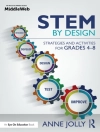Reflective Practice for Teachers explores a range of key issues that you will need to engage with during your teacher preparation and early career in the classroom in order to deepen your understanding of teaching practice. Case studies and ‘What does this mean for you?’ boxes in every chapter take ideas from research and show how they can apply to the real world of teaching.
This second edition has been updated with:
- a new chapter on assessment
- extended discussion of metacognition in the classroom
- critical perspective on what we really know about brain-based learning
- further coverage models of reflective practice
Mục lục
Chapter 1: Reflective Practice
Chapter 2: Teaching as Professional Practice
Chapter 3: Education in the Twenty-First Century
Chapter 4: The Learning Process
Chapter 5: Teaching for Learning
Chapter 6: Theories on the Nature of Intelligence
Chapter 7: The Importance of Positive Thinking
Chapter 8: Self-directed Learning
Chapter 9 Understanding Student Diversity
Chapter 10: Skills and Strategies for Differentiation
Chapter 11: Evaluation
Chapter 12: Beginning Your Teaching Career
Giới thiệu về tác giả
Maura Sellars trained initially at the Froebel Institute in London (now part of the University of Roehampton) before completing B. Ed (Hons) at the London Institute of Education. She has worked in primary schools in the UK and Australia for 28 years, teaching all the primary grades at one time or another. She gained a Dip.Ed. in Religious Education from ACU′s Queensland campus before graduating from ACU (Strathfield) with M.Ed. (Research). On completion of her Ph D she has focussed on investigating new and creative ways of accommodating student difference and inclusivity in the courses she presents to preservice teachers and others. She is also committed to the importance of reflective practice for teachers and students of all ages, the needs of 21st century learners and establishing strong links between theory and practice (praxis) in order to promote strong, accurate self-knowledge that supports increased personal and academic success in relation to learning outcomes. She is currently investigating numeracy as social practice and how reflective practitioners might interpret the mandatory curriculum documents in numeracy and mathematics in order to make learning in these areas more accessible to diverse groups of learners.












